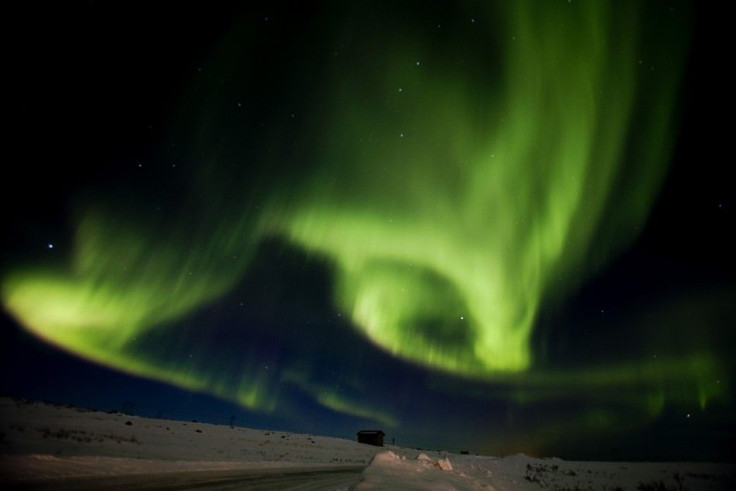Aurora Borealis 2012: Will the Solar Storm Cause The Northern Lights In Your Area? [VIDEO]

As the largest solar storm in five years hit Earth on Thursday morning, it will cause an unusual occurrence in the sky. Scientists expect that the array of cosmic activity caused by the solar flares and storms could expand the Aurora Borealis tonight, allowing people around the world to view the northern lights.
The Aurora Borealis is a natural display of light in the sky in high latitude regions. It is caused by a collision of charged particles with atoms in the thermosphere. This event is named after the Roman goddess of dawn, Aurora and the Greek name for the north wind, Boreas.
In the next 10 years, there will only be a 12 percent chance of seeing the northern lights in the largest city in the United States: New York. However, it will also be possible to get a glimpse of the event across the eastern seaboard and in other parts of the country. The last time New York City saw the Aura Borealis in the sky was 1859 during a solar storm.
In Anchorage, the University of Alaska Fairbanks Geophysical Institute is predicting extreme activity in the night skies on Thursday.
Auroral activity will be high. Weather permitting, highly active auroral displays will be visible overhead from Inuvik, Yellowknife, Rankin and Igaluit to Juneau, Edmonton, Winnipeg, Thunder Bay and Sept-Iles, and visible low on the horizon from Seattle, Des Moines, Chicago, Cleveland, Boston, and Halifax, said the University of Alaska Fairbanks Geophysical Institute on their website.
University of Alaska Fairbanks Geophysical Institute also developed the Aurora Borealis forecast tool to help people determine the best chances of seeing the northern lights.
The northern lights will also be visible in other parts of the world. BBC reports that it might be possible to get a glimpse of the Aurora Borealis in Great Britain.
Look north to a dark sky away from city lights, advised Ellen Clark, a geomagnetism scientist, to the Scots, according to the BBC.
© Copyright IBTimes 2024. All rights reserved.




















